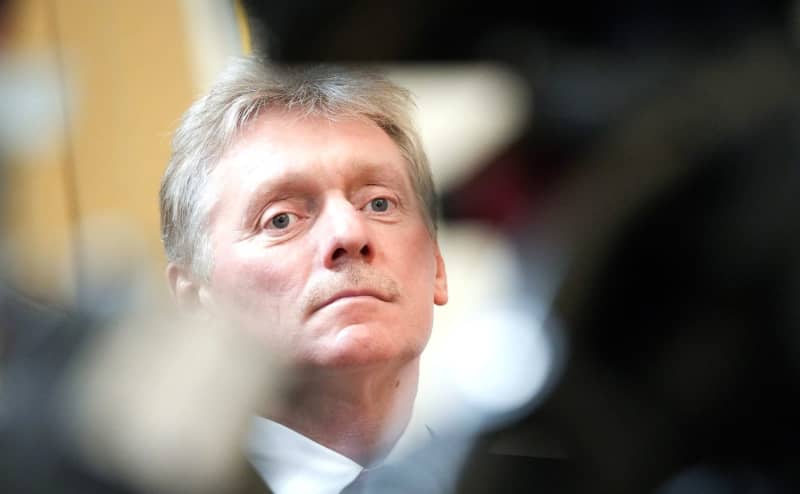Kremlin eyes failed Ukraine peace deal as basis for new talks

- Oops!Something went wrong.Please try again later.
- Oops!Something went wrong.Please try again later.
As Switzerland proposes to organize a peace summit to find a solution to the war in Ukraine, Moscow is now resurrecting an old solution - garnished with further demands.
The Kremlin sees an agreement between Russia and Ukraine on a peace settlement that was negotiated shortly after the start of the war in 2022 but ultimately failed as a possible basis for a new solution.
The agreement, negotiated in Istanbul at the time, could serve as the basis for new negotiations, Kremlin spokesman Dmitry Peskov told the Interfax news agency on Friday.
"New territories are now enshrined in our constitution, which was not the case two years ago," Peskov added.
The comments were prompted by the Swiss proposal for a peace conference, which is initially intended to mobilize more international support for Ukraine.
Discussions with Moscow are only to take place as a second step, which Russian President Vladimir Putin has criticized.
At a meeting with Belarusian leader Alexander Lukashenko on Thursday, the Russian news agency Interfax reported that Putin said it is clear that nothing can be decided without Moscow.
In late March 2022, about a month after Putin ordered the full-scale invasion of Ukraine, negotiators from Ukraine and Russia reached a provisional agreement during talks in Istanbul to halt hostilities as it became apparent that Moscow's planned capture of Kiev would fail.
It later emerged that Ukraine had initially agreed to forego NATO membership and remain neutral. However, the agreement was not implemented, partly due to disagreements over territorial claims.
Russia initiated the war under the pretext of "liberating" the Ukrainian regions of Donetsk and Luhansk, partly controlled by pro-Russian separatists, from Kiev's control.
Russia has since declared these two regions, as well as the territories of Kherson and Zaporizhzhya, as its own territory in the constitution, despite only partially controlling them militarily.
The failure is also attributed to the revelation of atrocities committed by Russian soldiers against Ukrainian civilians in Kiev suburbs like Bucha. This made reconciliation impossible for Ukraine.
Russia's stated terms include the retention of territorial conquests as well as Ukraine becoming a demilitarized, neutral country that does not become a member of NATO.
Ukrainian President Volodymyr Zelensky is calling for the withdrawal of Russian troops from Ukrainian territory.
Peskov declined to elaborate on Moscow's territorial claims, stating it was too early for details of "theoretical negotiations." There are still no signs that Ukraine is willing to talk, he added.
Meanwhile, on Friday officials said that both warring parties have exchanged the bodies of more than 120 dead soldiers.
Ukraine had received 99 dead soldiers back, the office responsible for prisoners of war in Kiev said via Telegram on Friday.
It said that 77 of them were killed in the Donetsk region, 20 in the Zaporizhzhya region and two in the Kharkiv region.
Russia, for its part, received 23 soldiers' bodies, the Russian news site RBK reported, citing Duma deputy Shamsail Saraliev.
Exact casualty figures among military personnel have generally been kept secret by both sides. But last month, Zelensky put his own side's losses at about 31,000 dead.
Western estimates put the death toll much higher.
US estimates from mid-2023 put the number of Ukrainian soldiers killed at around 70,000 and the number of Russian soldiers killed at 120,000.

